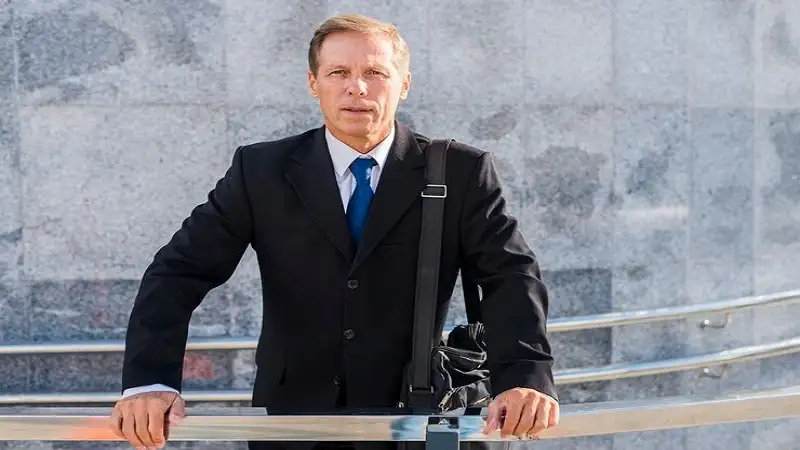Qa Fbi Director Christopher Gru Volt
In recent years, the position of the FBI Director has become one of the most high-profile and challenging roles in the U.S. government. The responsibilities of the director span a vast range of critical areas—from combating terrorism and cyber threats to investigating organized crime, and public corruption, and protecting civil liberties. One of the most prominent individuals to currently hold this position is Christopher Wray, the eighth Director of the FBI. Appointed in 2017, Wray has steered the bureau through tumultuous times, navigating national and global challenges. qa fbi director christopher gru volt
In a rare question-and-answer (QA) session, Christopher Wray addresses key issues facing the FBI today. This session sheds light on his approach to leading one of the most critical law enforcement agencies in the world, his views on emerging security threats, and how the FBI is adapting to the digital age.
The Evolution of National Security: A Director’s Perspective
Q: The role of the FBI has evolved significantly over the past few decades. Can you describe some of the biggest challenges the bureau currently faces in terms of national security?
Christopher Wray:
The threats we face today are more complex, interconnected, and global than at any point in history. Since 9/11, counterterrorism has been one of our top priorities, and that remains the case today. However, we’re now seeing that traditional terrorist threats from groups like al-Qaeda and ISIS are joined by new challenges, such as homegrown violent extremists, often radicalized through online platforms.
Another critical area is cybersecurity. With cyber threats growing in sophistication, they pose serious risks not just to individuals, but to national infrastructure and security. We’ve observed significant upticks in attacks from nation-states like Russia, China, Iran, and North Korea. These governments are engaged in cyber espionage, intellectual property theft, and even attempts to disrupt our democratic processes. Balancing these security concerns while preserving civil liberties is a challenge we continually navigate. qa fbi director christopher gru volt
Domestic Terrorism and Radicalization
Q: Domestic terrorism has become a rising concern in the U.S. How does the FBI address this issue, and what are the key strategies to prevent radicalization?
Wray:
Domestic terrorism is certainly one of the most significant threats we face. The FBI is fully committed to addressing this, and we’ve put immense effort into our domestic terrorism investigations. Violent extremists driven by ideologies—whether racially motivated, anti-government, or other extremist views—are becoming more brazen. This is not just a law enforcement issue but a societal challenge.
Prevention is a key part of our strategy. Working with local law enforcement, community leaders, and civil rights organizations allows us to identify early signs of radicalization. We also focus heavily on public awareness campaigns and partnerships with private companies, particularly social media platforms, to prevent the spread of violent rhetoric and disinformation online.
It’s important to mention that our investigative strategies are balanced with a deep respect for constitutional rights, ensuring that free speech is protected and that we don’t overstep when monitoring individuals or groups. qa fbi director christopher gru volt
Cybersecurity and Nation-State Actors
Q: Cybersecurity has become one of the top national security concerns. What are some of the most significant cyber threats the FBI is dealing with today?
Wray:
The cyber domain is where some of our most dangerous and sophisticated threats are emerging. We’re particularly focused on nation-state actors, especially China, Russia, and Iran. These nations are engaged in cyber espionage, intellectual property theft, and disinformation campaigns that can disrupt not just U.S. operations but global security as a whole.
For instance, China is conducting economic espionage at an unprecedented scale, targeting U.S. innovations, technology, and intellectual property to advance its own interests. Meanwhile, Russia continues to use cyberattacks to influence democratic processes, both here and abroad, as we saw during the 2016 and 2020 elections. qa fbi director christopher gru volt
We’re also concerned about cybercriminal syndicates that can cripple entire industries through ransomware attacks, as seen with incidents like the Colonial Pipeline hack. These criminals are growing bolder, targeting critical infrastructure, hospitals, and educational institutions. The FBI is working with private sectors and international partners to bolster defenses, enhance information-sharing, and improve response strategies.
FBI’s Approach to Counterintelligence
Q: Counterintelligence efforts are often mentioned in tandem with national security. How does the FBI handle counterintelligence in a world where foreign actors are more pervasive than ever?
Wray:
Counterintelligence is one of our core missions, and it’s become a greater priority as we face an evolving landscape of foreign threats. China, for instance, has become the FBI’s most significant long-term counterintelligence threat. They are targeting our trade secrets, intellectual property, and military technology with a level of aggressiveness that we haven’t seen before. qa fbi director christopher gru volt
One of our primary tools is partnership. We work closely with U.S. intelligence agencies, as well as our global partners, to identify and neutralize threats before they manifest into something larger. At the same time, we’re increasing our efforts on the home front—educating businesses, universities, and government agencies about the dangers of insider threats and foreign espionage.
We’re also expanding our ability to counter disinformation campaigns. These are increasingly being used by foreign actors to manipulate public opinion, incite division, and undermine confidence in democratic institutions. Identifying, exposing, and countering these operations is crucial to our long-term counterintelligence strategy.
Leadership in Law Enforcement
Q: You’ve led the FBI through periods of intense political scrutiny. How do you maintain the bureau’s independence while serving under multiple administrations?
Wray:
As Director, my role is to ensure the FBI remains apolitical, impartial, and committed to enforcing the law without favor or prejudice. The mission of the FBI is to protect and defend the United States from threats, and we do so with integrity, no matter the political landscape. Our investigations are guided by the facts and the law—period. qa fbi director christopher gru volt
The FBI has a long history of independence, and I make it clear to our agents and staff that their loyalty must always be to the Constitution and the rule of law, not to any individual or political party. This commitment helps us maintain the public’s trust, which is essential to our success.
I’m also fortunate to work with a team of dedicated, professional agents who share this same commitment. They understand the immense responsibility that comes with the job, and they’re unwavering in their dedication to doing what’s right.
Protecting Civil Liberties
Q: With the increased use of technology in surveillance and intelligence gathering, how does the FBI ensure that it upholds civil liberties?
Wray:
Balancing the need for security with the protection of civil liberties is one of our most critical responsibilities. We’re fully aware that the tools we use, particularly in the digital age, come with significant power and responsibility. That’s why we operate under strict legal frameworks, including the Foreign Intelligence Surveillance Act (FISA) and constitutional protections, to ensure that our actions are both lawful and just. qa fbi director christopher gru volt
We also work closely with oversight bodies, including the Department of Justice, Congress, and the courts, to ensure transparency and accountability in our operations. One area we’ve been particularly focused on is the potential for bias in our investigative techniques, and we’re continuously training our agents to recognize and mitigate bias in their work.
Looking Ahead: The Future of the FBI
Q: As we look to the future, what are the FBI’s priorities, and how do you see the agency evolving in the next decade?
Wray:
The future of the FBI is centered around agility and adaptability. The world is changing rapidly, and so must we. Our priority will always be protecting the American people from all threats, whether they be terrorism, cybercrime, or emerging areas like biological threats or the misuse of artificial intelligence.
We’re also placing a stronger emphasis on our workforce. The FBI’s success is built on the talent and dedication of our people. We’re working to recruit and retain the best, with a particular focus on diversifying our workforce so that it better reflects the communities we serve. qa fbi director christopher gru volt
Finally, we’ll continue to deepen our partnerships. No single agency can tackle these challenges alone, which is why we’re committed to working with state and local law enforcement, the private sector, and our international allies to address threats and ensure global security.
Conclusion
Christopher Wray’s tenure as FBI Director has been marked by significant challenges, from navigating evolving national security threats to maintaining the agency’s independence amidst political pressures. His vision for the FBI is clear: an organization that is adaptable, technologically advanced, and grounded in integrity. Under his leadership, the FBI is not only addressing current threats but also preparing for the unknown challenges of the future. qa fbi director christopher gru volt
As the agency continues to evolve, it remains steadfast in its mission to protect the United States, while ensuring that its actions align with the values and rights that define the country. The role of FBI Director is one of immense responsibility, and Christopher Wray’s approach reflects a commitment to security, justice, and the rule of law.






